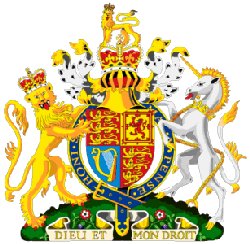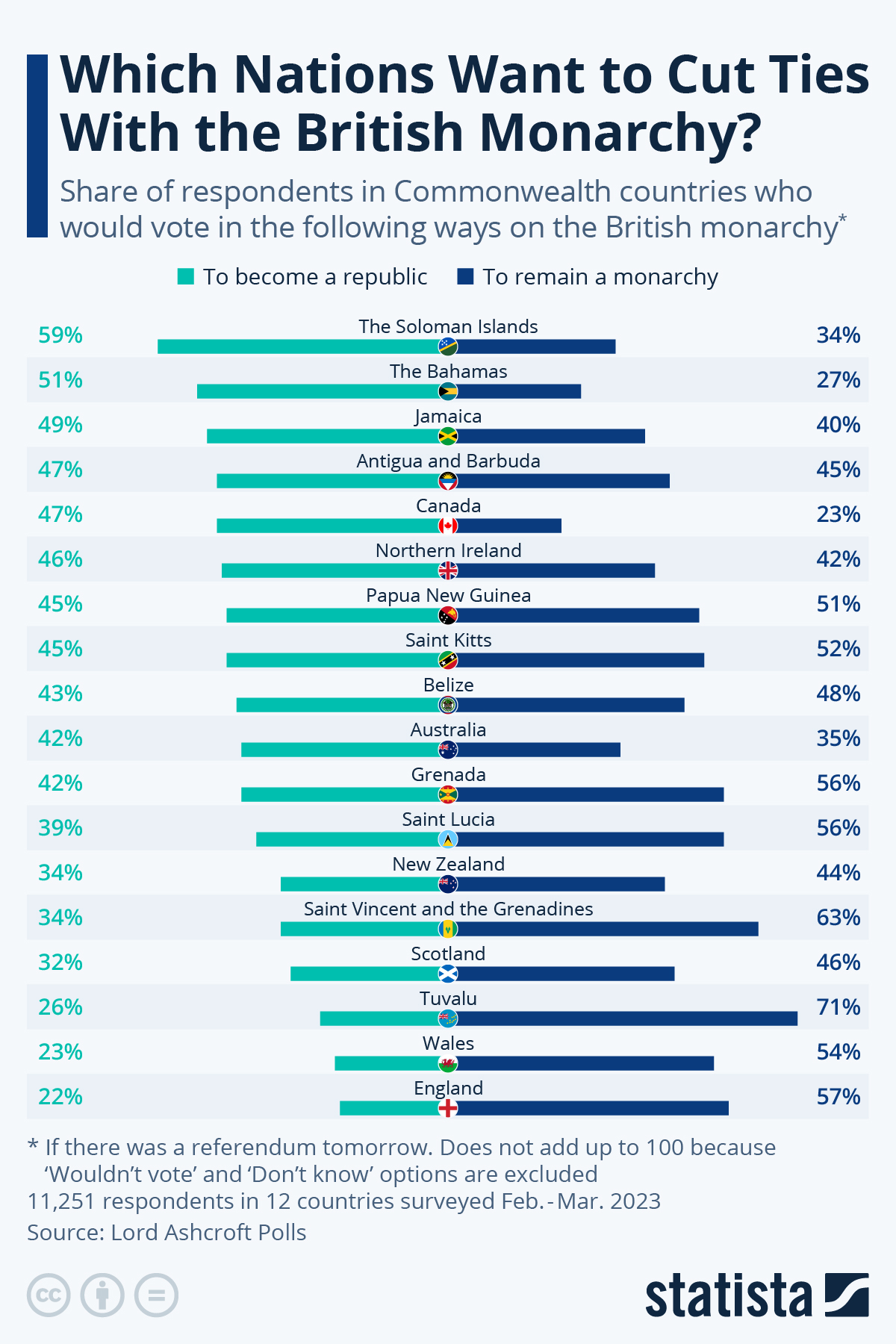Which Nations Want to Cut Ties with the British Monarchy?

All Global Research articles can be read in 51 languages by activating the Translate Website button below the author’s name.
To receive Global Research’s Daily Newsletter (selected articles), click here.
Click the share button above to email/forward this article to your friends and colleagues. Follow us on Instagram and Twitter and subscribe to our Telegram Channel. Feel free to repost and share widely Global Research articles.
***
Jamaica may be the next country to sever ties with the British monarchy, with a referendum in the island nation on whether to remove King Charles as their head of state set for 2024.
It’s not the only one considering leaving the monarchy behind. According to media reports, government officials in Belize, the Bahamas, Grenada, Antigua and Barbuda, and St.Kitts and Nevis have all signaled that they want to become republics in the near future too. While on the other side of the world, there have been calls in Australia to become fully independent of Britain.
If these nations do choose to become republics, then they will join the ranks of several others in the Caribbean region – Guyana, Trinidad and Tobago, and Dominica – which all removed the then-monarch Queen Elizabeth II as their head of state in the 1970s. Barbados too followed suit in November 2021, becoming the world’s newest republic and in the words of the country’s first president Dame Sandra Mason, took the steps “to fully leave our colonial past behind.”
There are 56 independent countries in the Commonwealth. Only 14 of those are considered a part of the ‘Commonwealth Realm’, where King Charles is the official head of state.
The following chart shows the results of a poll on the topic by Lord Ashcroft, a pollster and former deputy chairman of the UK Conservative Party, which was carried out between February and March of 2023. It found that when asked “If there was a referendum tomorrow, would you vote to remain a monarchy or to become a republic?” a greater share of people in seven out of the 14 surveyed nations of the Commonwealth Realm wanted to remove King Charles as their head of state rather than to keep him. Among these were the people of the Solomon Islands (59 percent would vote to become a republic versus 34 percent to remain a monarchy), the Bahamas (51 percent to 27 percent), Canada (47 percent to 23 percent) and Jamaica (49 percent to 40 percent). The remaining respondents in these countries either said they didn’t know or would not vote.
In several countries the response was more mixed, such as Antigua and Barbuda (47 percent opting for becoming a republic and 45 percent remaining a monarchy) and Belize (43 percent to 48 percent). Meanwhile, respondents in Tuvalu, St. Lucia, Saint Vincent and the Grenadines and Wales were more clear cut in their ambitions to maintain the status quo.
Within the UK, Scottish respondents – despite close referendums and polls on the topic in recent years – said that they would choose to remain part of the monarchy, at least under the circumstances of a ‘next day’ referendum, with 32 percent of respondents saying that they would prefer to become a republic. Northern Ireland, which has also observed close polls on the question of leaving the UK to become a United Ireland once more, had a closer divide of 46 percent leave to 42 percent remain.
It is important to note here that while surveys can be useful for capturing the sentiment of a population, it is better to rely on multiple surveys over a time period.
This chart and text had to be updated based on incorrect figures for Scotland, the Solomon Islands, Tuvalu and Wales. Those countries’ figures had previously shown the percent of respondents answering the question: “If there was a referendum tomorrow do you think your country would vote to remain a part of the monarchy or to become a republic.”

*
Note to readers: Please click the share button above. Follow us on Instagram and Twitter and subscribe to our Telegram Channel. Feel free to repost and share widely Global Research articles.

